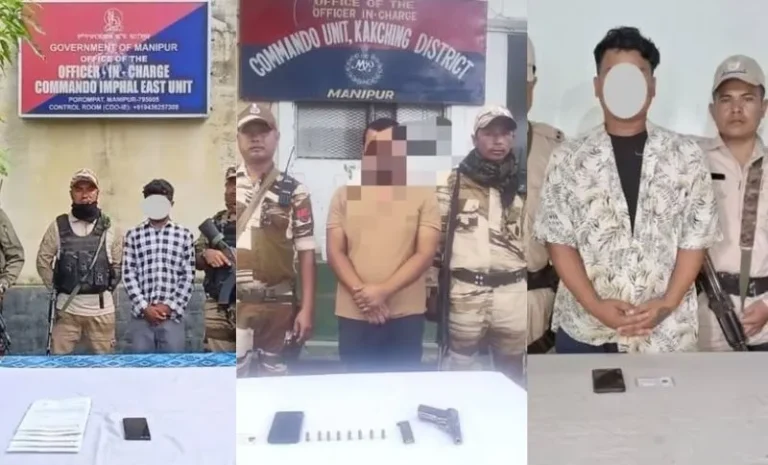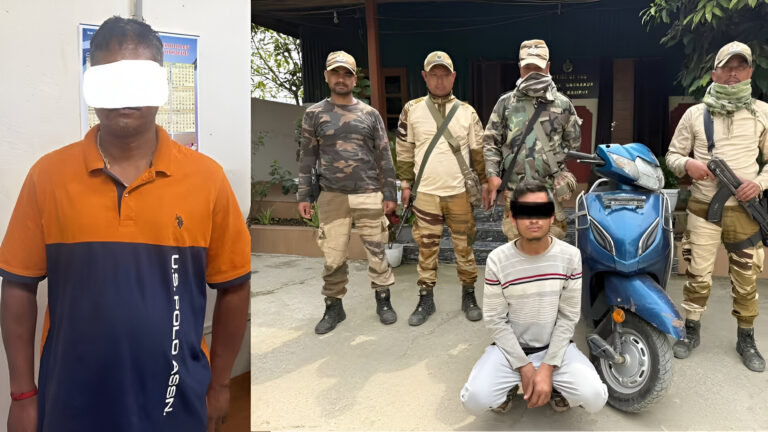CM Biren Inaugurates RobvenaNi 2024 Celebration in Punanamei Village
On December 18, 2024, Chief Minister N. Biren Singh inaugurated the RobvenaNi 2024 Celebration at Asufu Robvena Ground in Punanamei Village, Senapati District. The festival, emphasizing unity, love, and selflessness, brought together communities in a spirit of harmony.
Summary of the Event
The RobvenaNi 2024 Celebration, held in Punanamei Village, was inaugurated by Chief Minister N. Biren Singh. The festival focused on promoting unity, love, and selflessness among the communities, fostering a spirit of harmony and togetherness.
Detailed Overview of RobvenaNi 2024 Celebration
Significance of RobvenaNi Festival
RobvenaNi is a traditional festival celebrated by the Poumai Naga tribe in Manipur. The term ‘RobvenaNi’ translates to ‘Feast of Merit,’ symbolizing the values of unity, love, and selflessness within the community. This festival serves as a platform for reinforcing social bonds, preserving cultural heritage, and promoting communal harmony.
Inauguration by Chief Minister N. Biren Singh
The inauguration ceremony was graced by Chief Minister N. Biren Singh, who emphasized the importance of unity and progress in his address. He stated, “As we gather here today, let us renew our commitment to these values and work towards a Manipur where unity and progress prevail.”
Cultural Performances and Activities
The festival featured a variety of cultural performances, including traditional dances, folk songs, and indigenous games, showcasing the rich cultural heritage of the Poumai Naga tribe. Artisans displayed traditional crafts, and local cuisines were offered, providing attendees with an immersive cultural experience.
Community Participation and Impact
The RobvenaNi festival witnessed participation from various communities across Manipur, reflecting the state’s diverse cultural tapestry. Such events play a crucial role in fostering mutual respect and understanding among different ethnic groups, contributing to social cohesion and peace in the region.
Historical Context of RobvenaNi Festival
Origins and Evolution
The RobvenaNi festival has its roots in the ancient traditions of the Poumai Naga tribe. Historically, it was a celebration marking the completion of significant communal projects, such as the construction of village infrastructure or successful harvests. Over time, it has evolved into a broader celebration of cultural identity and communal values.
Traditional Practices
Traditionally, the festival involves rituals that honor ancestors and deities, seeking blessings for prosperity and well-being. Elders narrate folklore and impart wisdom to the younger generation, ensuring the transmission of cultural knowledge and traditions.
Cultural Significance and Preservation
Role in Cultural Preservation
Festivals like RobvenaNi are vital for preserving the intangible cultural heritage of indigenous communities. They provide a platform for the expression of traditional art forms, languages, and customs, ensuring their continuity in the face of modernization.
Government Support and Initiatives
The presence of the Chief Minister at the event underscores the government’s commitment to supporting cultural preservation. Such endorsements encourage the documentation and promotion of indigenous cultures, attracting tourism and fostering economic development in the region.
Economic and Social Implications
Boost to Local Economy
The RobvenaNi festival attracts visitors from various regions, providing a boost to the local economy. Artisans and vendors benefit from the increased demand for traditional crafts and local produce, promoting sustainable economic development.
Strengthening Social Fabric
By bringing together diverse communities, the festival strengthens the social fabric of Manipur. It fosters a sense of belonging and mutual respect among participants, contributing to social harmony and reducing ethnic tensions.
Challenges and Future Prospects
Preservation Amidst Modernization
One of the challenges faced by traditional festivals like RobvenaNi is maintaining cultural authenticity amidst the influences of modernization and globalization. Balancing tradition with contemporary relevance is essential for the festival’s sustainability.
Youth Engagement
Engaging the youth in cultural practices is crucial for the preservation of traditions. Incorporating contemporary elements, such as modern music or digital platforms, can attract younger participants and ensure the festival’s continuity.
Conclusion
The RobvenaNi 2024 Celebration in Punanamei Village stands as a testament to the rich cultural heritage of Manipur and the enduring values of unity, love, and selflessness. The active participation of the community and the support from government officials, including Chief Minister N. Biren Singh, highlight the significance of such festivals in promoting social harmony and cultural preservation. As Manipur continues to progress, embracing and celebrating its diverse cultural traditions will play a pivotal role in shaping a cohesive and vibrant society.
FAQs
- What is the RobvenaNi festival?
- RobvenaNi is a traditional festival celebrated by the Poumai Naga tribe in Manipur, symbolizing unity, love, and selflessness.
- Who inaugurated the RobvenaNi 2024 Celebration?
- Chief Minister N. Biren Singh inaugurated the RobvenaNi 2024 Celebration in Punanamei Village.
- What activities are featured in the RobvenaNi festival?
- The festival includes traditional dances, folk songs, indigenous games, and showcases of traditional crafts and local cuisines.
- How does the RobvenaNi festival contribute to the local economy?
- The festival attracts visitors, boosting demand for traditional crafts and local produce, thereby supporting the local economy.
- Why is the RobvenaNi festival important for cultural preservation?
- It provides a platform for expressing and transmitting traditional art forms, languages, and customs, ensuring their continuity.


